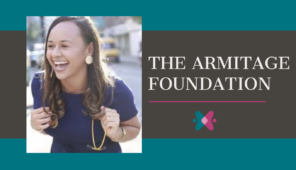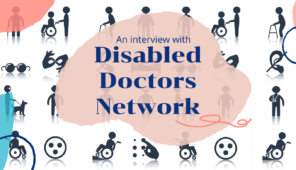Working in New Zealand as a Psychiatry resident medical officer
We hear from Dr Christina Hudson who gained experience working in New Zealand as a Psychiatry Resident Medical Officer after F2
Dr Christina Hudson is currently a Core Psychiatry Trainee in London, but shares of her experience working in New Zealand as a Psychiatry RMO.
WHY DID YOU DECIDE TO WORK OVERSEAS AND AT WHAT POINT IN YOUR CAREER DID YOU GO?
I decided to go after F2 – It was a natural break for me to go abroad. I had always wanted to live in New Zealand for a stretch and I was unsure what I wanted to specialize in after F2. I had not done a Psychiatry job over the Foundation Programme so I wanted to get some experience in this field before applying.
WHY DID YOU CHOSE NEW ZEALAND AS A DESTINATION?
I applied for jobs in New Zealand and Australia, but I was much more inclined to NZ. The climate is similar to home in the UK (but warmer!), New Zealanders are a very friendly bunch and the landscape is breath-taking.
HOW DID YOU SECURE A JOB WORKING IN NEW ZEALAND AS A PSYCHIATRY RMO?
I had a lot of advice from friends prior to applying. Most suggested not signing up with specialist agencies and just reaching out directly to hospitals asking for work. I only got so far with this however so signed up with a couple of agencies. I was very impressed with an agency called Triple0 and had two job offers within a couple of weeks. Stating that I wanted to work in Psychiatry seemed to be a real advantage.
The job offer that I ultimately declined was a registrar post in Rotorua. Registrars in NZ are generally less experienced than those in the UK so SHOs often get these posts. If you are a registrar from the UK they would probably be very keen to have you! I know less about consultant Psychiatrist positions – however many agencies seemed to advertise for these roles and there always seem to be jobs on LinkedIn!
HOW DID YOUR EXPERIENCE AS A PSYCHIATRY RMO COMPARE TO THE UK?
Since returning to the UK I have started Core Psychiatry Training in London. Psychiatry in the UK has become quite sub-specialist particularly in London however working more remotely in NZ means your experience is more general. My day job covered a forensic rehabilitation unit, general adult and old age inpatients. Whilst on call I also covered A&E, liaison, crisis clinics, CAMHS and police stations. The cases are similar to those in the UK (depression, personality disorder, psychosis); however there is more of a cultural interpretation on their care, which is fascinating. There are Maori cultural advisors at each hospital who are super helpful and come to lead MDT meetings.
This breadth of experience was a real help when applying to Core Training as I had a lot to call on in interviews! Psychiatry welcomes life experience so working abroad for a time was not a disadvantage particularly if you get some relevant audits done.
WHAT IS THE LIFESTYLE AND WORK-LIFE BALANCE LIKE?
My day job hours were 8am – 4pm. I was working a 1 in 3 on call rota, covering out-of-hours from home between 4pm and 8am. It sounds like a lot of work however it was well-rewarded with ‘Call Back” fees each time you get called back between 10pm and 8am. As far as I understand it this is a common set-up for Psychiatry across NZ and it can be very lucrative!
Living on the North Island was great as many locations were accessible for a weekend getaway. As a group we travelled all over and it very much felt like a working holiday.
ANY GENERAL ADVICE?
Some hospitals in NZ are very remote and therefore you can find yourself the only on call doctor covering an entire hospital at night including all specialties and the A+E department. Whilst this is a great learning experience, it can be daunting. Check what the on call work is like before accepting the job!
If you are travelling alone consider living in hospital accommodation initially while you find your feet instead of signing a rental contract that you’re tied into. You can then take some time to get to know that area first and other hospital employees often look for housemates or lodgers if you don’t want to live alone.
Sara Sabin
Latest posts by Sara Sabin (see all)
- 4 Common Mistakes Doctors Make on their Non-Medical CVs - 25th November 2020
- Top 10 tips for black Wednesday survival..and beyond - 3rd August 2016
- 10 Mistakes Doctors Make When Applying for Management Consultancy - 26th June 2016

